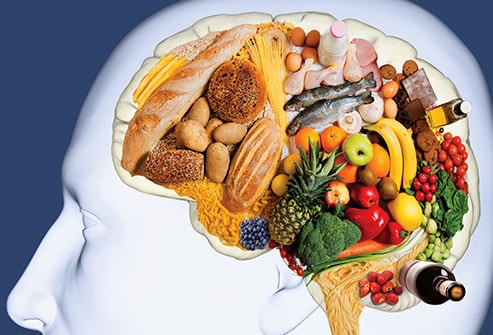Brain-boosting foods to improve memory for exam season students
Nutritional pharmacist Le Kim Phung, former lecturer at the University of Medicine and Pharmacy in Ho Chi Minh City, said that the ingredients of brain tonics include omega 3 fatty acids, vitamins D and B, and some plant active ingredients that can enhance brain activity. However, these nutrients cannot be effective immediately if not combined with a balanced diet.
"No short-term supplement can replace a balanced diet for the whole year," pharmacist Phung emphasized.
|
Image:WMD |
According to Ms. Phung, a balanced diet includes carbohydrates (starch and sugar), protein (animal and vegetable protein) and fat (especially essential fatty acids).
Starch and sugar group
Cereals, barley and wholemeal bread, brown rice, pasta made from wheat or corn... provide high energy, lots of B vitamins and fiber. You can alsoReplace cane sugar with a small amount of honey and chocolate.
Fruits and vegetables such as citrus fruits, guava, tomatoes, cabbage, broccoli, strawberries... provide vitamin C, boosting immunity to prevent infectious diseases such as flu and colds. Daily meals should include at least one portion of dark green (broccoli, cabbage, spinach) or orange, deep yellow (peaches, mango, carrots, sweet potatoes, pumpkin). These foods provide beta-carotene to the body to improve immunity and protect vision.
Protein group
Animal protein contains essential amino acids and minerals. Calcium is found in cow's milk, yogurt, and cheese. Meanwhile, liver, red meat, fish, chicken, egg yolks, and oysters provide iron and zinc. Iodine is found in fish and seafood.
Vegetable protein in dried beans promotes intestinal motility.
Fat group
Polyunsaturated fatty acids such as omega 3 are beneficial for brain cells and improve memory. Omega 3 is abundant in fish and seafood, especially fatty fish such as sardines, tuna, salmon, anchovies and cod. Daily supplementation of fish oil is good for the brain and nervous system, especially during stressful periods such as exams.
Monounsaturated fatty acids are found in olive oil, canola oil, and safflower oil. Nuts, peanuts, peanut butter, olives, and avocados are good for the heart and arteries.
Vitamins for the brain
Vitamin D is one of the most important vitamins for body and brain health. Oily fish and egg yolks are good sources of vitamin D.
B vitamins include B1 (thiamine), B2 (riboflavin), B6 (pyridoxine), niacin, folic acid, biotin, pantothenic acid and vitamin B12, which have a positive effect on nerve function. These vitamins are abundant in yeast, whole grains, liver, meat and green leafy vegetables.
Phytochemicals found in berries, citrus fruits, black or green grapes, green tea. Spices such as ginger, turmeric, oregano, sage, rosemary, garlic or onions are good for the brain due to their antioxidant and anti-inflammatory properties.


.jpg)







